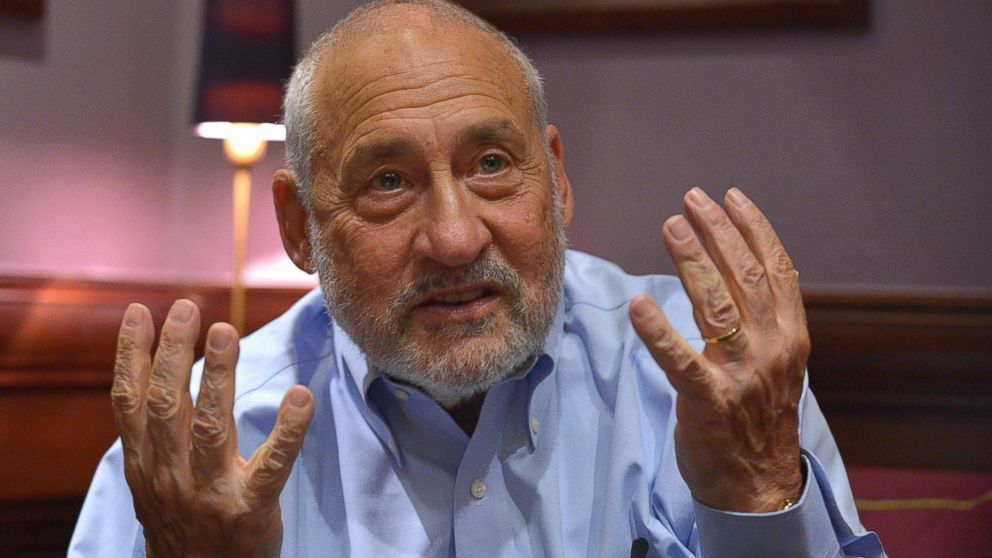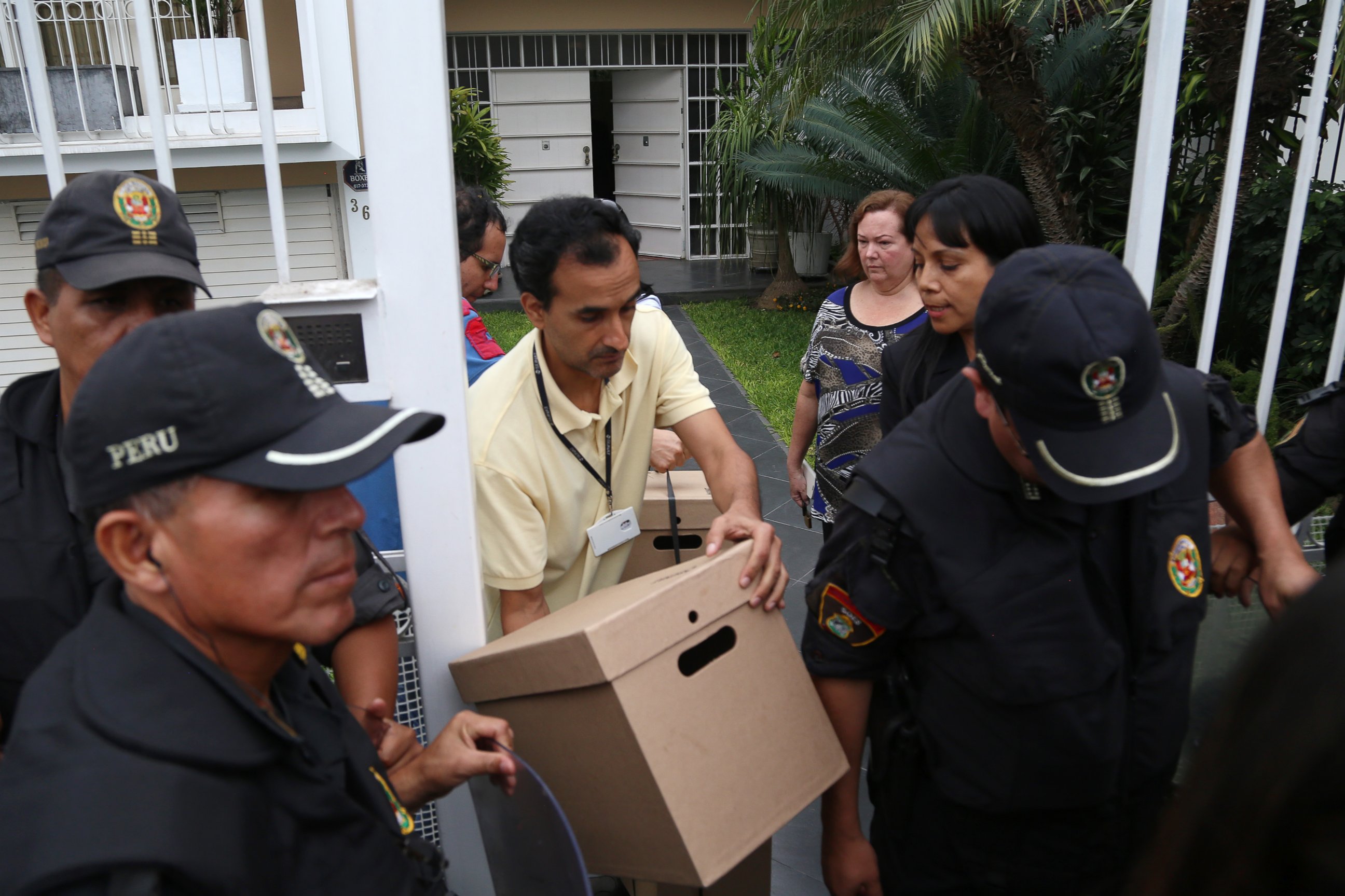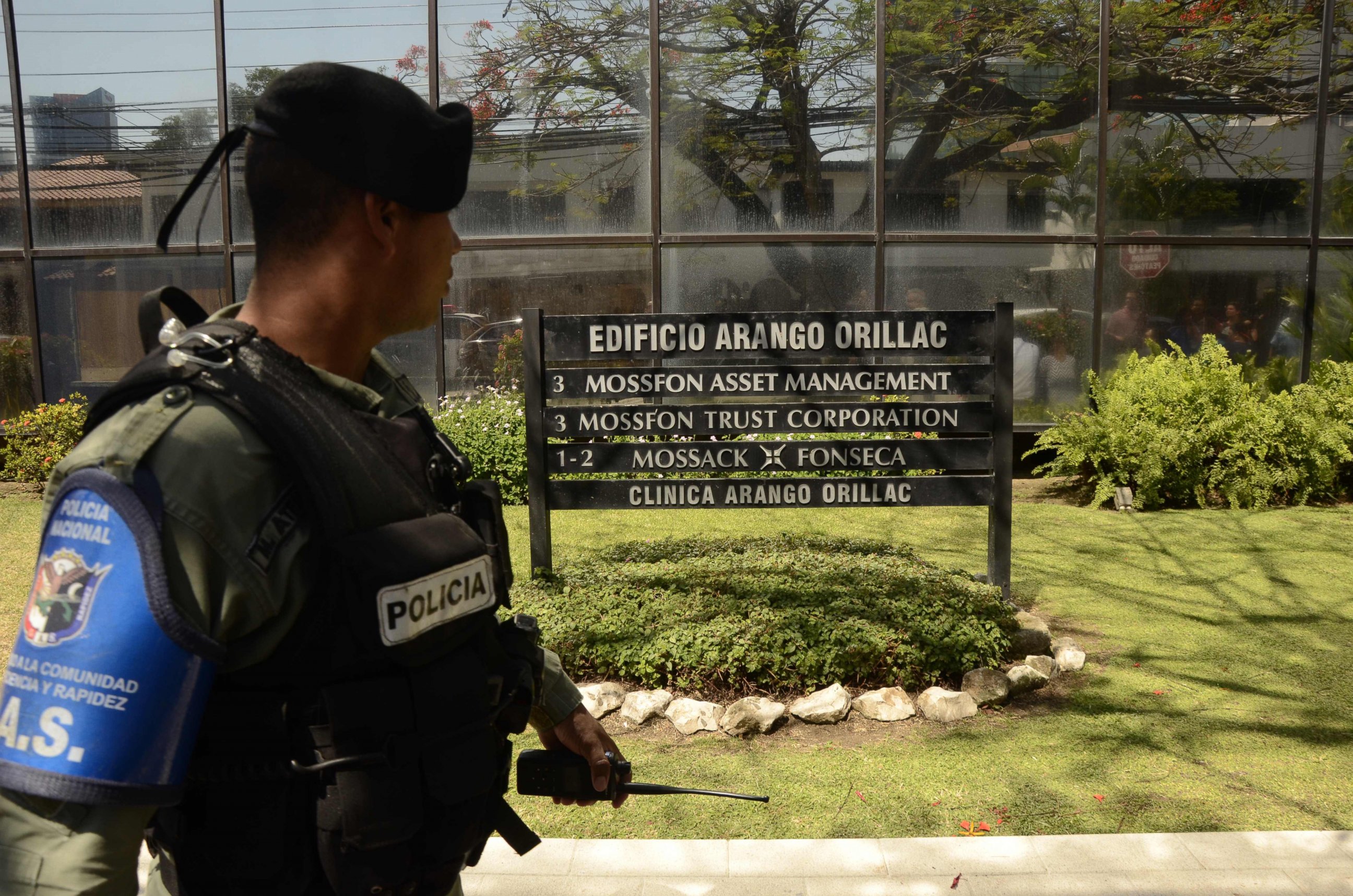Panama Papers Commission ‘Will Have No Credibility,’ Former Chair Joseph Stiglitz Says
The Nobel laureate economist said remaining members may be under pressure.

— -- Just days after resigning from a committee set up to study Panama's finance system in the wake of the Panama Papers scandal, the largest leak of private financial data to the public in history, economist Joseph Stiglitz, a Nobel laureate, told ABC News the remaining panel "will have no credibility within the international community" -- unless they make tough recommendations, which he believes is unlikely.
Stiglitz, who was co-chair of the committee and resigned in protest last week along with Swiss anti-corruption expert Mark Pieth, told ABC News that he could not proceed without a commitment from the Panamanian government that it would publish the panel’s final report publicly.
Questions over the credibility of the committee -- which was established by the Panamanian government to "strengthen Panama as a global financial center with the best practices of transparency" -- could heighten concerns over whether Panama will reform its finance industry to discourage tax havens and secret accounts.
Responding to Stiglitz, the Government of Panama told ABC News that they “are disappointed that two of the committee members preferred to alter the mandate of the committee,” but that they “have full confidence in the committee to continue its important work.” Some of the committee’s remaining members have denounced Stiglitz's view.
Biggest Financial Data Leak in History
In April, millions of documents leaked from Panamanian law firm Mossack Fonseca drew widespread concern after reports alleged rich and powerful individuals were using the firm to establish secretive tax havens so they could engage in money laundering, dodging sanctions or tax evasion.
Shortly after the leak, Mossack Fonseca issued a statement saying the reports "portrayed an inaccurate view" of the firm's services and "misrepresented the nature of our work and its role in global financial markets."
The firm also said that it is "regulated on multiple levels, often by overlapping agencies, and [has] a strong compliance record."
It is important to note that creating offshore companies or tax havens is not inherently illegal and can have legitimate uses.

The news sent ripples around the world. In all, 12 current or former heads of state or government were in some way ensnared in controversy by the documents, according to the BBC, which was one of the organizations investigating the documents.
Iceland’s prime minister, Sigmundur Gunnlaugsson, stepped down after reports alleged he owned an offshore company that was undeclared when he entered parliament. He denied any wrongdoing. Russian president Vladimir Putin made a public denial of "any element of corruption," after the papers reportedly revealed several offshore companies owned by his close associates may have been engaged in money laundering.
The Committee’s Beginnings
Stiglitz, who won the Nobel Prize for Economics in 2001, told ABC News on Sunday that shortly after the documents were leaked, the Panamanian government contacted him about joining a panel to investigate the country’s financial governance.
Concerned that the panel could have been a public relations stunt, Stiglitz said that he sought assurances that the government was serious about cleaning up any wrongdoing that the panel might find.
To convince the world-renowned economist of the government’s sincerity, Panama’s vice president, Isabel Saint Malo, flew to New York to meet with him, he said. Ultimately, he agreed to co-chair the commission.
Stiglitz said he assumed that the findings of the panel would be made public, though he says he never received a specific guarantee.
"I hadn’t put it up as a point of negotiation because I just assumed," he told ABC News. "For me, it went without saying."
The committee -- which included Gisela Álvarez de Porras, Alberto Alemán Zubieta, Domingo Latorraca, and Nicolás Ardito Barletta, all Panamanian; Roberto Artavia, who is Costa Rican; Stiglitz, who is American; and Pieth, who is Swiss -- had its first meeting in Panama in early May, the American economist said, and agreed to meet again a month later.
Resignation
Stiglitz said that he first became concerned after receiving emails between the May and June meetings from a liaison between the government and the committee, who he said was "emphasizing that the government owned the report," citing the government's decree that established the committee.
At the June meeting, Stiglitz said he raised his concerns and found support from Pieth. He said he told the group, "We can’t proceed if this is not going to be open."
Stiglitz said he was willing to give the government time to formulate a response to the findings before a report would be released.
"All I [wanted] was a commitment that it would be made open," he said.
Nearly two months later, in late July, committee members received a letter via email from Panama’s acting vice-minister of foreign affairs, Dr. Farrah Urrutia.
The letter, Stiglitz said, made him feel that the government was not prepared to offer him any further guarantees about making the committee's work public.
After the letter, Alemán, the co-chair, said he traveled to New York for a pre-scheduled meeting with Stiglitz and Latorraca, another committee member.
Stiglitz confirmed the meeting took place, "Basically, he began by saying ‘the government can’t meet your requirements...and I recommend that we disband,’" he said.
Alemán told ABC News that he indicated to Stiglitz that he intended to finish the report. He denied that he recommended that the group disband, saying that he was only open to Stiglitz's and Pieth's leaving.
Later that week, Stiglitz and Pieth resigned in a public statement where they said: “It is clear that there are divergent views between the Government and those initially agreed to by the Independent Committee concerning transparency and the scope of the Committee’s work, and these divergences have in turn led to seemingly irreconcilable divergences."
"We suggest that the Independent Committee disband," they concluded.
Will the Findings be Public?
In emails to ABC News, some of the remaining members underscored their commitment to finishing their work and appeared strongly opposed to disbanding.
"At no time has the government indicated that they would not make the findings public," Alemán told ABC News in an email on Tuesday.
Latorraca said that it was the committee’s understanding "that the Government of Panama will make these recommendations public, once it receives and analyzes the Committee’s findings."

On Friday, the Panamanian government issued a statement saying that the committee had been "managed with autonomy."
Responding to Stiglitz’s comments to ABC, the Panamanian government said today that it was "fully committed to ensuring the total transparency and independence of the Committee and its work," and "we expect them to deliver nothing less than an honest, accurate, and independent assessment of Panama’s system and how it can better promote transparency."
Status of the Panel
The four Panamanian members – Porras, Alemán, Latorraca, and Ardito Barletta – as well as the Costa Rican member, Artavia, remain on the panel.
"They may remain on, they may make recommendations that may be helpful to the Panamanian government," Stiglitz said. "I think that it will have no credibility within the international community that they have gone anywhere near far enough, that they will have addressed the key issues."
"Evidently, they don’t care about transparency," he said. "I think they must be under pressure from the government."
Alemán called Stiglitz's characterization of the remaining members disrespectful and said, "I can assure you that all the remaining members of these Committee are completely independent and have not had nor will accept pressure from the government or from any one."
He said, "I do believe that the committee will have the credibility to finish the work at hand."
Stiglitz said that the report would have to make extraordinary recommendations to be taken seriously. Two issues that the report would need to be taken seriously, he said, include the creation of a public registry of beneficial owners of corporations and closer scrutiny of tax-free zones in Panama.
"The sense I got from the Panamanian members was that they were not likely to rock the boat, and therefore it is unlikely that they will touch on the sensitive issues, which are the heart," he told ABC News. "In fact, unless they do, it will just further discredit Panama."
Artavia, the sole remaining international member, believes the conditions were made clear to the panel members from the beginning. "Stiglitz and Pieth either joined the committee without reading the terms of reference or decided to change them once they were halfway through their work," he told ABC News. "But let me tell you more, the government has never said that it will not make the findings public."
Porras and Ardito Barletta did not respond to ABC News' request for comment.
Pieth provided his and Stiglitz’s joint statement, but declined to comment further.




